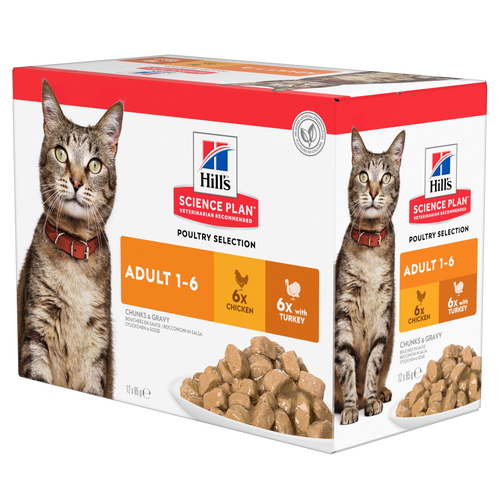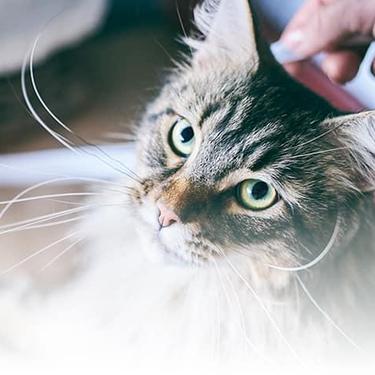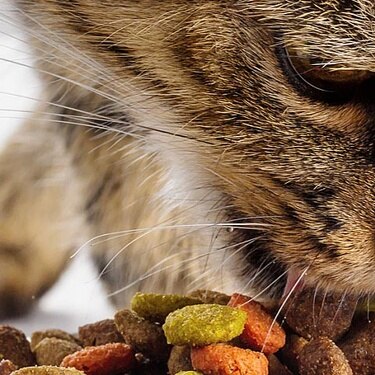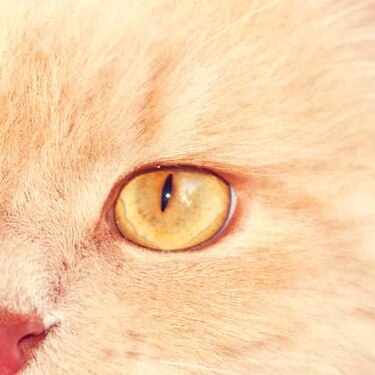
-
Find the right food for your petTake this quiz to see which food may be the best for your furry friend.Find the right food for your petTake this quiz to see which food may be the best for your furry friend.Featured products
 Sensitive Stomach & Skin Dog Food
Sensitive Stomach & Skin Dog FoodHill's Science Plan Sensitive Stomach & Skin Adult Wet Dog Food with Chicken is a complete premium dog food for adult dogs from 1 year. This savoury tinned loaf is enriched with ingredients that support digestive health & skin care.
Shop Now Perfect Weight Small & Mini Adult Dog Food
Perfect Weight Small & Mini Adult Dog FoodHill's Science Plan Adult Small & Mini Dog Food with Turkey is a complete premium pet food for adult small dogs from 1 year old that are prone to weight gain or slightly overweight. This deliciously smooth mousse is formulated to deliver the appropriate amount of energy to support weight maintenance in adult dogs.
Shop Now Perfect Digestion Small & Mini Adult Dog Food
Perfect Digestion Small & Mini Adult Dog FoodHill's Science Plan Perfect Digestion Small & Mini Adult Dog Food with Turkey is a complete premium pet food for small breed adult dogs aged 1–6 years. This deliciously smooth mousse is precisely balanced to deliver the appropriate amount of energy and to support digestive health in adult, small breed dogs.
Shop NowFeatured products Mature Adult Wet Cat Food with Chicken
Mature Adult Wet Cat Food with Chicken
Tender chicken chunks in gravy for mature adult cats. Made with easy-to-digest ingredients, high-quality protein for lean muscle maintenance and antioxidant vitamins C+E for optimal health.
Shop Now Adult Multipack Wet Cat Food with Beef, Ocean Fish & Chicken
Adult Multipack Wet Cat Food with Beef, Ocean Fish & ChickenTender chunks in gravy for cats, with high-quality protein to maintain lean muscle. With vitamin E and omega-3s & -6s for healthy skin and balanced minerals to support healthy vital organs.
Shop Now Light Adult Multipack Wet Cat Food with Chicken & Ocean Fish
Light Adult Multipack Wet Cat Food with Chicken & Ocean FishTender chicken chunks in gravy for cats, with L-carnitine and fewer calories for ideal weight management. Packed with high-quality protein, omega-6s, and vitamin E for shiny fur and healthy skin.
Shop Now -
Dog
- Dog Tips & Articles
-
Health Category
- Weight
- Food & Environmental Sensitivities
- Urinary
- Digestive
- Joint
- Kidney
-
Life Stage
- Puppy Nutrition
- Adult Nutrition
- Senior Nutrition
Cat- Cat Tips & Articles
-
Health Category
- Weight
- Skin & Food Sensitivities
- Urinary
- Digestive
- Kidney
-
Life Stage
- Kitten Nutrition
- Adult Nutrition
Featured articles The Right Diet For Your Pet
The Right Diet For Your PetIn people, the right diet is very important. If you are eating the wrong way for your metabolism, activity level, age and lifestyle you could end up with health issues.
Read More Show some love with wet foods: a great choice for pets with health issues
Show some love with wet foods: a great choice for pets with health issuesShow some love with wet foods: a great choice for pets with health issues.
Read More The Incredible Science Behind Your Pet's Microbiome
The Incredible Science Behind Your Pet's MicrobiomeLearn what your pet's microbiome is, how it contributes to your pet's gut and overall health, and why nutrition is important in maintaining healthy microbiomes.
Read More -


A slice of warm bread is a tasty treat for many pet parents, but should it be shared with a furry friend? Can cats eat bread, or is bread bad for cats? Before giving your pet some of your sandwich or baguette, here's what you need to know about cats and bread.
Can Cats Eat Bread?
As is the case with many human foods, small amounts of baked bread are generally OK for cats to eat in moderation. Cats shouldn't eat bread on a regular basis but, rather, reserve it for a once in a while treat.
Healthwise, there is nothing in baked bread that is bad for your cat, but it should be consumed in moderation. While bread, especially whole grain, is a good source of nutrients such as vitamins, minerals, fibres and carbohydrates, eating too much of it is not good for a cat, especially if the bread is highly processed. For a frame of reference, a slice of white bread provides one-fifth of all the calories an average cat needs in a day. So, while two slices of bread might barely satisfy your appetite, it is far too much for your feline friend.
Bread can come in handy if you have to give your cat oral medication. You may be able to hide a pill in soft-baked bread or even squirt liquid medicine on it. However, your cat may not fall for this trick. Many cats will avoid food with medication because of its bitter taste. You may have better luck with canned cat food, the hospital advises, but if your cat enjoys a nice bit of bread, you can opt for that route.


Tasty Tips
Is Bread Bad for Cats?
Now that we know the answer to whether or not cats can eat bread is "yes, in moderation", it brings us to our next question: "Is bread dangerous for cats?" Certain varieties of baked bread are safer for cats than others. A good rule of thumb is the least processed the baked bread, the better it probably is for your cat.
The World Small Animal Veterinary Association emphasizes that what's safe for a human, may be toxic for an animal — and bread is no exception. If baked bread is flavoured with tomato, onion or garlic, the loaf should be considered one of the toxic foods for cats. Steer clear of herbs and spices, too, unless you can confirm they're safe for cats. It's always a good idea to consult your veterinarian before giving any human food to your cat.
In this article, you may have noticed the reference to "baked" bread. That is to clarify that while most baked bread is not one of the dangerous foods for cats, bread dough, which contains active yeast, does pose a substantial risk to a cat's health.
Yeast
Raw dough—any kind of yeast dough, not just bread—can expand, just like it does on the counter, inside your cat and lead to a distended stomach and severe bloating. In rare instances, surgery is required to remove the dough mass. Additionally, as The Kennel Club points out, "the multiplying yeast can start to produce alcohol", which can cause serious issues for your pet.

Additionally, ingesting uncooked yeast can cause your cat to be intoxicated. Also known as alcohol toxicosis, it occurs because "yeast fermentation products include ethanol, which is absorbed into the bloodstream, resulting in inebriation and metabolic acidosis (excessive amounts of acid that alter the chemicals in the blood)", the Merck Veterinary Manual describes. Alcohol is a big no-no for all animals because of the toxicity of ethanol, which can be fatal upon ingestion.
Signs of yeast ingestion include vomiting, diarrhoea and excessive gas or bloating. Contact your vet's office or an emergency care clinic right away if you suspect your cat has eaten raw dough containing yeast.
How Does Bread Affect Cat Nutrition?
Cats are obligate carnivores, which means they must get some of their nutrition from meat. In other words, they are obligated to eat some meat. They need a cat food developed with the right ingredients that provide the right balance of nutrients including meat-based protein, amino acids, vitamins, minerals and energy to ensure an optimum level of health.
Therefore, before giving your cat bread, consider not only their nutritional intake but their overall health. For example, if your cat has diabetes, check with your vet before feeding them bread. "Your veterinarian may recommend feeding your cat a food restricted in carbohydrates, which has been shown to improve control of blood glucose levels", says the College of Veterinary Medicine at Cornell University.
In general, you'll want to limit your cat's snacks, as feeding foods that they are unaccustomed to can cause stomach upset — even if they don't have a health condition. And remember, bread shouldn't have a regular place in a cat's nutritional plan. It's a savoury treat you can share every so often, in very small bites.


One of our staff authors prepared this article for you
Related products


Tender chicken chunks in gravy for cats, with L-carnitine and fewer calories for ideal weight management. Packed with high-quality protein, omega-6s, and vitamin E for shiny fur and healthy skin.

Tender chunks in gravy for cats, with high-quality protein to maintain lean muscle. With vitamin E and omega-3s & -6s for healthy skin and balanced minerals to support healthy vital organs.

Tender chicken chunks in gravy for mature adult cats. Made with easy-to-digest ingredients, high-quality protein for lean muscle maintenance and antioxidant vitamins C+E for optimal health.
Related articles

Learn how to make homemade cat treats that are healthy for your pet with this recipe from Hills Pet Nutrition.

From essential vitamins & minerals to different types of meat, learn what to look for when choosing the best cat food for your feline.

There are three common ways to feed a cat. Each way has its advantages and disadvantages.

Chocolate is known to be poisonous for dogs, but it can also be toxic for cats. Learn why chocolate is bad for cats & what to do if she's eaten it.

Put your cat on a diet without them knowing
Our low calorie formula helps you control your cat's weight. It's packed with high-quality protein for building lean muscles, and made with purposeful ingredients for a flavourful, nutritious meal. Clinically proven antioxidants, Vitamin C+E, help promote a healthy immune system.
Put your cat on a diet without them knowing
Our low calorie formula helps you control your cat's weight. It's packed with high-quality protein for building lean muscles, and made with purposeful ingredients for a flavourful, nutritious meal. Clinically proven antioxidants, Vitamin C+E, help promote a healthy immune system.

